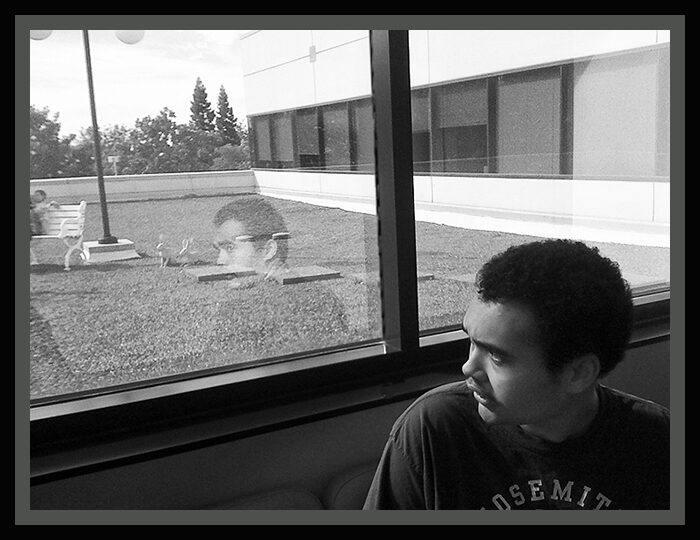Liz Ditz lizditz.typepad.com On March 3, 2012, Mr. Justice Mitting of the UK’s High Court of Justice ruled that the UK’s General Medical Council (GMC) had acted improperly in Professor John Walker-Smith’s hearing on charges of serious professional conduct, and therefore he quashed both the finding of serious professional misconduct and the sanction of erasure. (You can find the entire ruling at http://www.bailii.org/ew/cases/EWHC/Admin/2012/503.html.) It’s important to be very clear about what this ruling means. Mr. Justice Mitting did not find that Professor Walker-Smith’s actions were medically necessary or ethical. The ruling does not exonerate Walker-Smith. That was not what the hearing was about. Mitting was only ruling on the conduct, the decision-making, of the GMC’s Fitness to Practice panel. More broadly, Mitting found aspects of the GMC’s procedures to be flawed. And Mitting’s ruling has nothing to do with the retraction of the 1998 paper. It’s still retracted. It does not validate Andrew Wakefield’s integrity, or affect the…
Author: Liz Ditz
Photo © Fran López | Flickr / Creative Commons [image: Photo of a page from a play script, furled so the words form a spiral.] Bev Harp www.aspergersquare8.blogspot.com It seems that one of the hardest things for typical people to understand about autism is the way skill sets can seemingly change overnight, so that although, for example, I spoke very well yesterday, I can barely manage to put a sentence together this morning. I understand the skepticism I’ve encountered about this; before I knew much about autism, it’s one of the things that most made me doubt myself and question my sanity. This doesn’t apply only to speech and it isn’t always about short-term changes either. That’s just the aspect of life I’ve chosen to talk about today. Some of the people I interact with on a regular basis are familiar with some of the scripts I use on days when…
Amy M. Murphy www.aspergersthealien.blogspot.com By Beijing Patrol from US via Wikimedia Commons I’m not going to beat around the bush — Aspies love to tattle and point fingers at evildoers. Driving with an Aspie one can be sure if the stated speed limit is exceeded there will be words. Both my son and I consider ourselves to have a code of honor which is probably higher than most. We believe in rules, laws and a certain high standard of everyday conduct. He has remarked, more than once, that his aberrant behavior of a year and a half ago was more damaging to his psyche and personal pride as he broke his own moral code, than the whole jail/ prison sentence thingy. We like to attempt to hold others to our over-zealous standards. I made an excellent safety in grade school. I loved “patrolling” and reporting the tiniest malfeasance. If anyone…
Scott Standifer Autism Works National Conference We are in the dregs of winter where I live, and I’ve got the blahs. Everything is cold and grey, the branches are bare, the patches of snow are dirty, and spring seems like it will never get here. Our family’s latest antidote has been listening to a song on one of my son’s old toddler CDs–Bottle of Sunshine by Milkshake. It is a peppy song about a child who finds ways to be unstoppably proactive and creative to entertain herself on days when there is “nothing to do.” (Of course, you can’t really put sunshine in a bottle–that is a metaphor for something fun or cheerful that helps you feel good.) That’s a good metaphor for our upcoming Autism Works National Conference — an antidote for the blahs. There are a lot of people discouraged over the prospects for autism employment right now,…
Sara Winter Squag.com Squag is a new social media space with a difference, developed for tweens and younger teens with autism. The user (the tween, called a Squagger) begins using Squag by interacting with his or her own “Squagspace’” — designed to look like a room — with content (photos, videos, and messages added by parents. Eventually, when a particular Squagger is is ready (according to parents) one Squagger is matched with another, and they can interact. The interaction are always only between two Squaggers. The platform is now in beta user testing, which means the ability to connect pairs of Squaggers is not yet enabled. I saw a Squag announcement, and was intrigued by the concept, so arranged an interview with Sara Winter, Squag’s founder–LD What inspired you to create SquagTM? The idea came to me two years ago when I was on the playground with my nephew…
Mary Brandenburg and Tony Brandenburg www.theebrandenburgs.blogspot.com Trigger warning: discussion of aversives, restraint and seclusion; mistreatment of disabled people Recently, a story that has been in the headlines regarding treatment of students with disabilities concerned an autistic 4th grade boy in Kentucky. Reportedly, the boy smirked and threw a ball in class. The teachers’ response to this behavior was to stuff him in a duffel bag and tie the drawstring so he couldn’t get out. His mom was called to the school to deal with his behavior. She discovered him when she heard a voice calling from the army bag. Thankfully, he didn’t suffocate, but who can measure the emotional trauma he suffered? Another school in the news, the Judge Rotenberg Center, uses painful electrical shocks, restraint chairs, shackles and seclusion to control the behavior of people with disabilities. This center, which charges $200,000 yearly tuition, has lobbied extensively in Washington…
Kurt Gatejen www.pseudocognitive.blogspot.com For over two decades, my wife and I have ridden an emotional roller coaster of the sort quite familiar to most parents of special needs children. I’m not going to detail those experiences here for two reasons. First, that topic has been covered extensively all over the web, and second, I’m averse to expressing in a grand chronological and developmental scope events and feelings that may be completely misinterpreted as some kind of “woe is me” tale. I don’t begrudge anyone’s need to write about their emotional struggles; it can be very therapeutic for some people. While I may on occasion comment on particular difficulties in the lives of families with autism, I will not ever write an epic saga of that nature. The truth is, despite the many challenges we’ve encountered (and the seemingly intractable problems that loom in the future), neither my wife nor I…
David Heurtevent www.supportthewall.org France’s population is about 65 million. Assuming an autism prevalence of about 1 in 110, approximately 590,000 autistics live in France. The French education system contains about 13 million students in a two-tiered educational system: most children attend schools overseen by the Ministry of National Education, but approximately 100,000 students found to have significant disabilities — very few of whom have autism — attend schools run by the Ministry of Health. Most autistics are not educated at all. Significantly, childhood psychiatry in France is dominated by psychoanalysts, who (broadly speaking) view childhood behavioral issues as evidence of disturbances in the relationship between the child and the parents, particularly the mother. Psychoanalytic treatment therefore is not behavioral or educational, but seeks to change the child’s emotions. According to Chantal Sicile-Kira, whose autistic son was born in France, autistic children “had no right to an education. Instead, they were…
Chavisory www.chavisory.wordpress.com I got to open my presents early for Christmas this year, as my mother was going out of town to see family. I told her I hadn’t had a chance to wrap hers yet, so she could open it when she got back Christmas night. We didn’t get to finish opening presents that night. We had a yelling match about the true nature of the autism spectrum. I was diagnosed with Asperger Syndrome a year and a half ago (though I’d known the truth for several years previously), which I guess that most people in my life probably know by now because I decided that it was part of my life that I wasn’t going to make any particular effort to hide, because I had nothing to be ashamed of. I really have no idea what people think of me as a result, because I stopped concerning myself…
Liz Ditz What a year! We published 189 posts from 114 authors, many new to Thinking Person’s Guide to Autism. The complete list is below the fold. We branched out. I started to categorize the blog posts using the section headings from the book, and realized a lot of the posts didn’t exactly fit. We published a lot more posts by autistics, and more on adult issues in autism. Advocacy wasn’t a heading in the book, but was a big subject this year, and into the future. Technology and research were also covered with more posts than in previous years. Thinking Person’s Guide to Autism went to, and reported on, conferences: the International Meeting for Autism Research (IMFAR), the International Technology and Persons with Disabilities Conference, Hacking Autism’s App Hackathon, UCSF’s Developmental Disabilities Conference, and BlogHer. In terms of virtual events, we observed Autism Awareness Month by posting daily, and promoted and…



